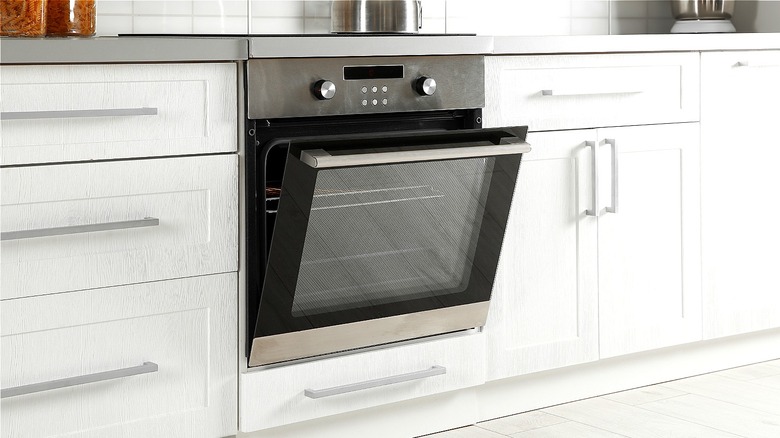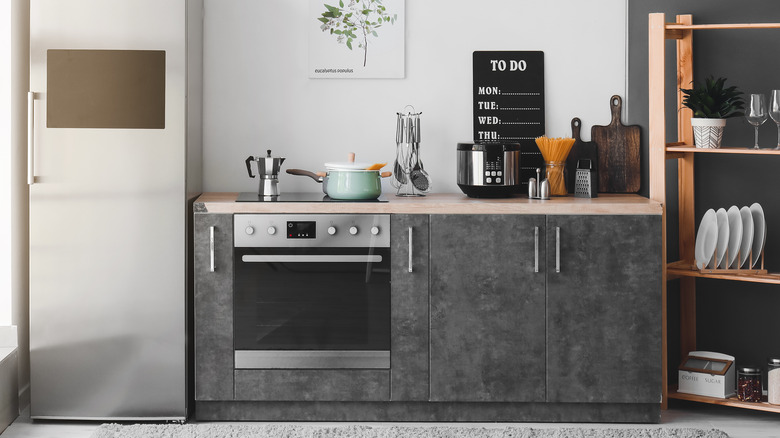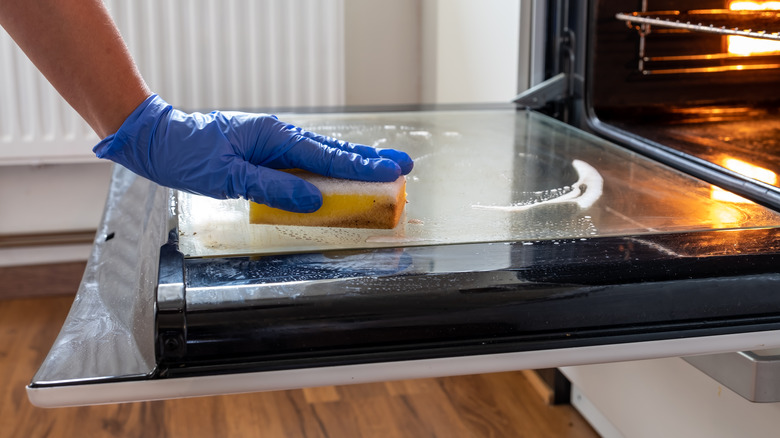How Long Should Your Oven Last?
A wall oven, often described as a range, is among the most useful appliances in every household. It's one of those appliances that make work easier in the kitchen because it comes with different functions to accommodate various cooking modes. In fact, modern ovens come with extra functions like delayed timers or a pre-installed fan that's supposed to improve your cooking experience. While this is true, it's also worth acknowledging that an oven is by no means a cheap buy. The cost of this appliance ranges between $600 and $3,500 but could go as high as $15,000 for the high-end models, per Angi.
As such, it's within reason for any homeowner to be concerned about getting value for their money. It's indisputable that your prized oven won't last forever. But how long will it be before you need to replace your unit? Here, we answer this question, discussing the approximate lifespan of an oven and a few tips for maximizing the life of your appliance.
What is the lifespan of an oven?
Let's begin by mentioning that there's no one answer to this question. How long any appliance will last is entirely dependent on several factors like the specific brand and the degree of care and maintenance observed, just to mention a few. The good news is that ovens typically have quite a long lifespan, averaging about 16 years with proper care and maintenance, per Mr. Appliance. One of the main reasons why an oven has a generally longer lifespan is because it has few moving parts.
This significantly reduces the occurrence of breakdowns and repairs, allowing this appliance to live to its full potential. However, you should keep in mind that not all ovens are built the same. When it comes to longevity, a gas oven typically lasts longer than its electric counterpart, promising up to 13 years of service. Gas ovens are easier to care for and maintain because they have comparatively fewer parts than electric alternatives. Lastly, although the oven is a tough appliance, the frequency of use will also determine how many years of service you will get from it.
Maximizing the life of your oven
One of the most effective ways of extending the life of your oven, or any other home appliance for that matter, is proper care and maintenance. A clean oven works better than a dirty one; therefore, be sure to clean all the sloppy mess right after the appliance cools down. Leaving the spills and grime to accumulate will make the interior deteriorate a lot faster. What's more, a dirty oven will expend more energy just to achieve the heating requirement, which in turn could accelerate wear and tear to the parts.
Note that, although some ovens come with a self-cleaning function, you should use it sparingly. According to Food52, temperatures inside an oven can reach over 900 degrees Fahrenheit during the process. While this might seem like a good idea for anyone who's not a fan of cleaning, exposing the oven to such high temperatures might result in premature wear and tear. What's more, incinerating the food residue will also release an unpleasant odor into the air. Instead, consider deep-cleaning your oven every three months or so to ensure it stays in good working condition.


